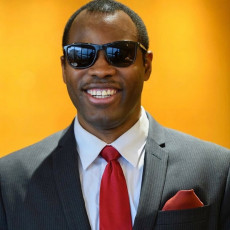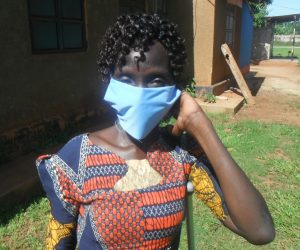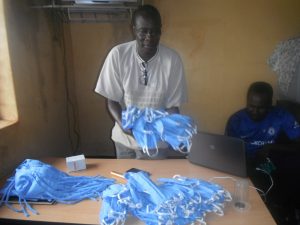While many members of our society express outrage because of indifference among some of our leaders with respect to injustice and inequality, people living with disabilities around the world have been facing those injustices for centuries. Consequently, during the past few decades, leaders such as Ted Kennedy and John McCain in the United States Congress have worked to put laws on the books in order to mitigate the economic disparity affecting Americans who live with disabilities.
Following the American example, the United Nations ratified the Convention on the Rights of Persons with Disabilities at its New York headquarters on December 13, 2006, hoping to push leaders and governments to create opportunities and viable conditions for citizens with disabilities in their respective countries.
In some third-world countries, specifically, vulnerable people have suffered abuses both from family members and from others in their communities. To address this problem, in 1995 the Republic of Uganda added a provision to the Ugandan Constitution that protects the rights of people with disabilities on the national and local levels.
Nevertheless, while this constitutional provision counts for affirmative action and creates equal opportunity for Ugandan citizens, economic disparity has continued. The laws protecting Ugandans living with disabilities exist on paper, but they have not been implemented in practice, leaving this community one of the most vulnerable in the country. These economic disparities persist not because citizens with disabilities are incapable of contributing to society, but instead because members and leaders of their communities fail to give them a chance to prove themselves.
My own experience as a person who lives with a disability, along with my fellowship, solidifies my passion to advance the fight to educate society so that people with disabilities can be acknowledged as valuable citizens and contributors to their communities. The two pictures above are a clear indication of how valuable citizens with disabilities can be when given the chance to contribute positively.
The Gulu Disabled Persons Union, in partnership with the Advocacy Project, was looking for ways to help save lives after COVID-19 sent the whole world to quarantine. As a result, GDPU members, including a group of disabled tailors, put together the Mama Masks Project. The masks follow the guidelines of international health standards so that people in the Gulu district, which encompasses the second-largest city in Uganda, can have a way to protect themselves when they have to step out of their homes. Additionally, GDPU is training approximately a half-dozen individuals to produce liquid soap so that the community can have these necessary products available to protect itself against the novel coronavirus.
The Mama Masks and liquid soap initiatives show that, if given the opportunity, citizens with disabilities can produce resources that benefit all citizens while creating a path that can allow them to sustain themselves economically. This example should apply worldwide so that people with disabilities can have vital support in the areas of education and accommodations in the workplace and receive equal consideration when applying for jobs in the private sector.
Reflecting on my past two weeks with AP and the conversations I have had with Ojok Patrick, the director of the Gulu Disabled Persons Union, there is a lot of work to be done in Uganda as well as in developed countries such as the United States. Thus I appeal to everyone who believes that society should unite so that we can fight against inequality of any kind.
Posted By Wilson Charles
Posted Jun 20th, 2020




4 Comments
Alexandra Mayer
June 25, 2020
The Mama Masks and liquid soap initiatives sound integral to community health. How do you think we can broach the disparity between law and practice in Uganda and here in the United States when it comes to equal opportunity?
Iain Guest
June 28, 2020
Hi Wilson. Your fine blog places disability right at the center of the current global debate over inequality, racism and injustice. The laws are on the books but they need to be enforced and one important way to do that is enable persons with a disability to generate income – particularly difficult at a time of economic crisis. This will not be easy! Could it be that GDPU’s soap and mask projects offer the way? Here’s hoping! We’ll follow the story through your blogs and learn a lot.
Brigid Smith
July 1, 2020
Your blog was very eye opening, Wilson, especially given the current debate on racism/inequality in the United States. As society has been reflecting on the disparity between what is written in a law vs. what is actually carried out in relation to race, it is vital to remember the other injustices that exist in the world. I have honestly never deeply considered the inequalities that are present for people with disabilities. You remind me how much there is to learn not just on this topic, but on other social justice issues. I am thankful for this opportunity to learn from you and hope to continue to educate those around me as I learn.
Mary Ellen Cain
July 7, 2020
Thank you for describing the challenges of the disabled in third-world countries, especially now in the pandemic. The mask and soap projects are two timely and practical ways to alleviate some of the hardships experienced by the disabled and their supporters. We appreciate your work in coordinating these projects and look forward to more reports!